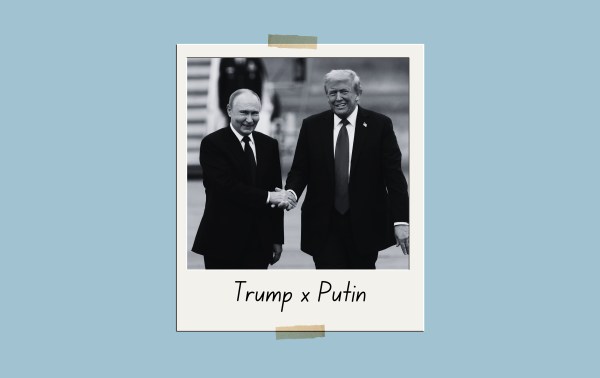A fun story I covered many years ago was the opening of the first McDonald’s in New Delhi. This was back in the 1990s, when we mostly felt a lot better about globalization, back when Tom Friedman was formulating his wry (and often misinterpreted) “Golden Arches Theory of Conflict Prevention”—the hypothesis that a country with a McDonald’s in it was unlikely to go to war with another McDonald’s country, the idea being that two countries sufficiently integrated into the global economic order to have McDonald’s would have shared economic interests and commitments to multilateral institutions that would make war the least desirable option in a conflict. It wasn’t—and isn’t—a terrible idea or a stupid one, though it has proved to be untrue in its strongest and most literal form.
Opening a McDonald’s in India—where getting permission to serve beef commercially is a bit like getting permission to serve human flesh marinated in methamphetamine in the United States—presented some challenges, but McDonald’s is a very innovative and dynamic company. In New Delhi, that meant reformulating the burgers to use lamb rather than beef, maintaining two completely separate kitchens to accommodate the various demands of both Hindu and Muslim dietary requirements, etc. The result was a McDonald’s in which the food was—in spite of the differences in ingredients and preparation—indistinguishable from what you’d get in Columbus, Ohio. I can appreciate the consistency and admire the work that goes into maintaining it—but I don’t want the whole world to be Columbus, Ohio.
(Columbus is the fourth-most-average U.S. city; if it were the most average, it would be interesting for that reason. But Columbus manages to avoid even the distinctiveness of distinctive non-distinctiveness, which is why it is “Test Market USA.”)
The opening of that first McDonald’s occasioned some discussion about cultural imperialism and the fear that globalization really means Americanization—which, of course, it largely does and has, but India wasn’t and isn’t at much risk of being inundated by Americanism, there being far too much India to submerge even in such a tide as that. During the Raj, it was a commonplace observation among the apologists for colonial rule that India was a geographic term rather than a political one, and today one might make a similar observation that partly reverses the line: that India is a political term rather than a cultural one. India is diverse in a way that is far more many-splendored—1,369 “mother tongues” producing 121 languages, 22 with official status, seven major religions, etc.—than is the United States, which boasts so energetically of its diversity. I haven’t been there in more than 25 years, but I am told that India still is very much a different country from village to village. And, while I believe there is great value in multinational business, cultural and economic exchange, free trade, travel, multilateral organization—globalization, in a word—I am with Russell Kirk in cherishing the genuine organic diversity of real people living real lives in real communities.
It is easy for regulation to become suffocating—and heavy regulation can itself be a source of homogenization, as we are seeing with the worldwide Europeanization of some aspects of social-media regulation and business practice. But some kinds of regulation have the opposite effect, reinforcing and protecting real diversity—which can give consumers more real choices. I have here in mind such mechanisms as France’s appellation d’origine contrôlée—nobody is saying you can’t sell prosecco, but you can’t call it Champagne. France has been doing this for a long time—what is Roquefort cheese and what is not has been a matter of French law since 1411, when the periodically psychotic Charles VI (he’s the one whose army Henry V tore up at Agincourt—you know, in that Kenneth Branagh movie) took a kingly interest in the “King of Cheeses.” A particular appellation d’origine contrôlée is known as an AOC (for this, at least, we may envy the French their politics), and the associated regulations are—I suppose this is almost literal—granular, attached to certain terroirs. There are only 9.4 acres on God’s green Earth that can produce Château-Grillet wine, at least as far as French regulators are concerned.
The Swiss, like the British, are a trading people, though for opposite geographic reasons: The British, thriving on their happy island, mastered the seas, while the Swiss, landlocked and protected by the Alps, have long operated not as a port but as a fort—or, perhaps more appropriate, a bank vault: protected by thick walls and complicated codes, but open for business during regular hours.
Which brings us to the big economic news of the day: Toblerone.
Though it will seem contradictory to a certain kind of simple-minded libertarian, the Swiss are a very free people who have a lot of rules—lots and lots of rules, oodles of them. In answer to the French, the Swiss have their appellation d’origine protégée rules, because Emmentaler and Gruyère aren’t the same thing, and Vacherin Fribourgeois is different from both. (“Swiss cheese,” indeed.) Because the Swiss are famous for certain high-quality exports, they are picky about what gets to be called “Swiss” at all, even indirectly. And so Toblerone, the chocolate candy bar, will be getting some new packaging—no more Swiss flag and no more Matterhorn, at least on some Toblerone bars, because some Toblerone bars will now be made in Bratislava. Switzerland (visitors’ bureau motto: “Bring Money!”) is a very rich country with a highly skilled workforce, and it is very, very expensive to make things there. That works fine if you are F.P. Journe and you make 900 redonkulously expensive wristwatches a year, but it is a lot harder to make that work when you make candy by the ton to sell at a markup of centimes a box. So Toblerone’s makers are shifting some work down the road to Slovakia, where it is less expensive to manufacture chocolate candy.
Fine, say the Swiss, do as you must—but don’t even think about putting a Swiss cross on the wrapper. There’s a reason Swiss chocolate is famous and Slovak chocolate is not.
The economist Tyler Cowen makes a fine case for big-is-beautiful in his Big Business: A Love Letter to an American Anti-Hero. And it is a persuasive case, too. But bigness—particularly bigness in multinational commerce—all but demands sameness. There is desirable sameness—“consistency”—and there is sameness that means monotony, boredom, excessive homogeneity, market forces rolling rough-shod over the inconsistent little local things out of which so much of a rich and interesting life is made.
Different things are different—raise a glass of Champagne, or prosecco, or California sparkling white to that. You wouldn’t think that would be a radical notion, but try applying it to women’s sports and see what kind of reaction you get.
Vive la différence.







Please note that we at The Dispatch hold ourselves, our work, and our commenters to a higher standard than other places on the internet. We welcome comments that foster genuine debate or discussion—including comments critical of us or our work—but responses that include ad hominem attacks on fellow Dispatch members or are intended to stoke fear and anger may be moderated.
With your membership, you only have the ability to comment on The Morning Dispatch articles. Consider upgrading to join the conversation everywhere.